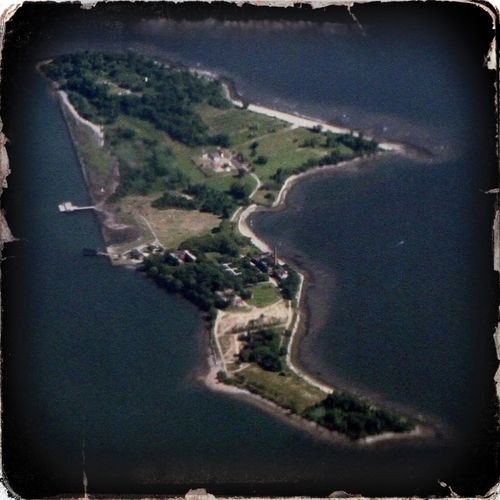WILLIAMSVILLE — I had heard a Pope celebrate Easter at St. Patrick's Cathedral on Fifth Avenue in New York City; I'd cheered a rousing Easter in a rural Virginia church; I'd celebrated sunrise Easters and many a new-straw-bonneted one.
But I'd never been to a cyber Easter Sunday service.
Until now. Until this time, this spring of 2020, unprecedented in myriad ways.
Expecting the unexpected, the new normal is already old and so, on April 12, I connected to my local Episcopal church to hear the seasonal music I love so much - not from a choir in place, but from various dens, kitchens, and living rooms around the region, the settings for sundry choir members chiming in for a joyful noise.
I dialed in to savor the liturgy - comforting lessons of death and resurrection - and to hear what our wise and loving rector, Mary Lindquist, had to say that day.
There's not been a lot to be joyful about this Eastertide. Yes, they say there're birds singing for the first time in years in Wuhan and there are blue skies in Manhattan, L.A., and Beijing. Italians are serenading one another across piazzas from safe balconies. I haven't filled my tank for a month, literally; metaphorically, I'm outside refueling regularly, swinging my spirit from budding treetops.
But there is some death around us in southern Vermont and death rampant across our borders in hard-hit states and devastated counties where family and friends are Zoom-ing and calling regularly to reassure they're OK - albeit surrounded by death.
Death, the knell of impermanence.
So when Mary started to speak, I flicked a quick wish for straight shooting. (Truth is: I know her preaching well and count on it; she's always pithy.) I didn't need a silver-lining sermon replete with fresh buds and baby chicks. I just needed truth, to hear my rector honestly say that these are truly tough times and that neither she nor God could find the rose-colored glasses.
As Mary spoke, she told of the desperation Christ's world faced at the time of his death. His role in humankind's salvation - for believers - was quintessential, but it sure wasn't a picnic: I don't imagine his rejoicing at being nailed to the dogwood so we all could get another crack at goodness.
Those were truly tough times, too, 2020 years ago.
* * *
Mary then referenced a New York Post report that torqued me. An island off the Bronx, Hart Island, has been a burial ground for the five boroughs' indigent since the 1800s. And now it's the resting place for the unknown or unclaimed victims of COVID-19, who are buried there in graves dug by inmates from Rikers Island nearby.
Almost biblical, isn't it?
Heretofore, roughly 24 bodies a week were being interred on Hart Island. Now it's that number per day in trenches three coffins deep with the names of the dead scribbled on their cheap, simple boxes.
My imagination takes over trying to tap the lives of those buried on this potter's field. Yes, centuries ago - even back to the time of Christ himself - potters' fields were places where paupers and lost souls met their maker. But this is 2020, and this is the United States of America.
How can this be? Does our president see the ubiquitous and pathetic irony when he plunks his bright-red MAGA hat on his peachy head?
Here in Williamsville, we've just tilled our own field and planted little seeds that are slowly showing wisps of plants - these will soon grow and flourish in the crisp sunshine and clean air of the most beautiful place I've ever loved to live.
And yet, just 155 miles south, the unknown soldiers of this war lie woeful, bereft of a loved one's parting words, never having felt the last soft kiss on the forehead, the back of the hand brushing the cheek from which color slowly fades.
Never having said goodbye.
* * *
In a March 18 article in The Boston Globe, Stephen Kinzer, senior fellow at Brown University's Watson Institute, wrote that the pandemic is so far beyond the realm of our experience, history, skill set, imagination, and intelligence that it's the rare mind that could possibly conjecture the “what next” with any accuracy and confidence.
I get it.
This is bigger than most of us. Beyond the mask, the rubber gloves, the 6 feet of distance; beyond yearning for sane White House leadership, teaching remotely as best I can, and breathing in the sweet contentment of just being home, I get that there's very little I can do.
So I'll just turn my heart and my prayers to the fields: to the one on Hart Island in my native New York City, now brimming with bodies of the unclaimed, and to the other, here at home, where I have faith that what I plant will grow.
As things should at Eastertide - even under ominous skies.
